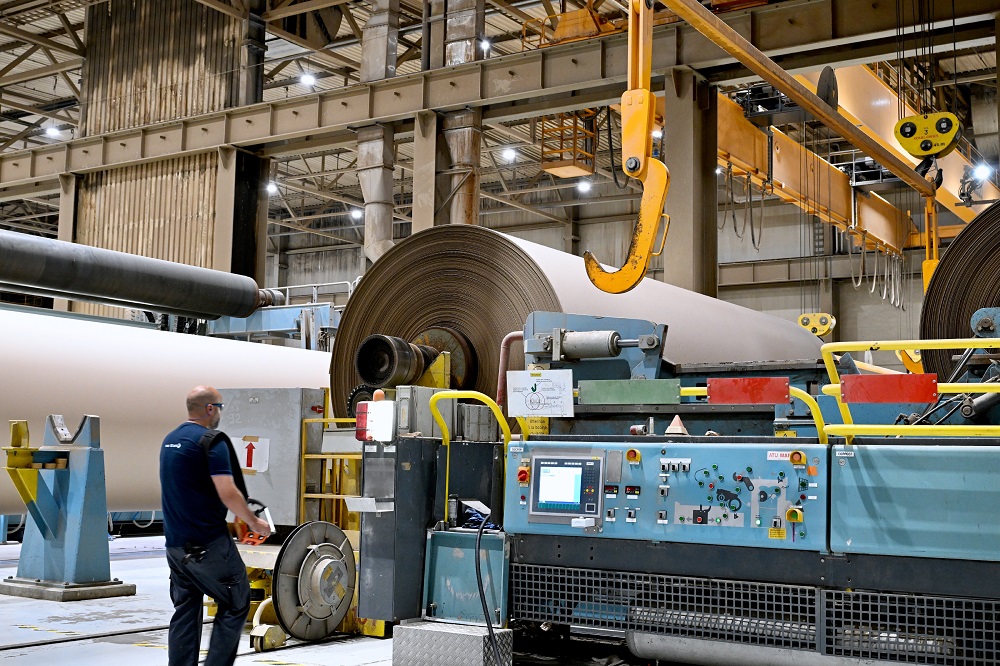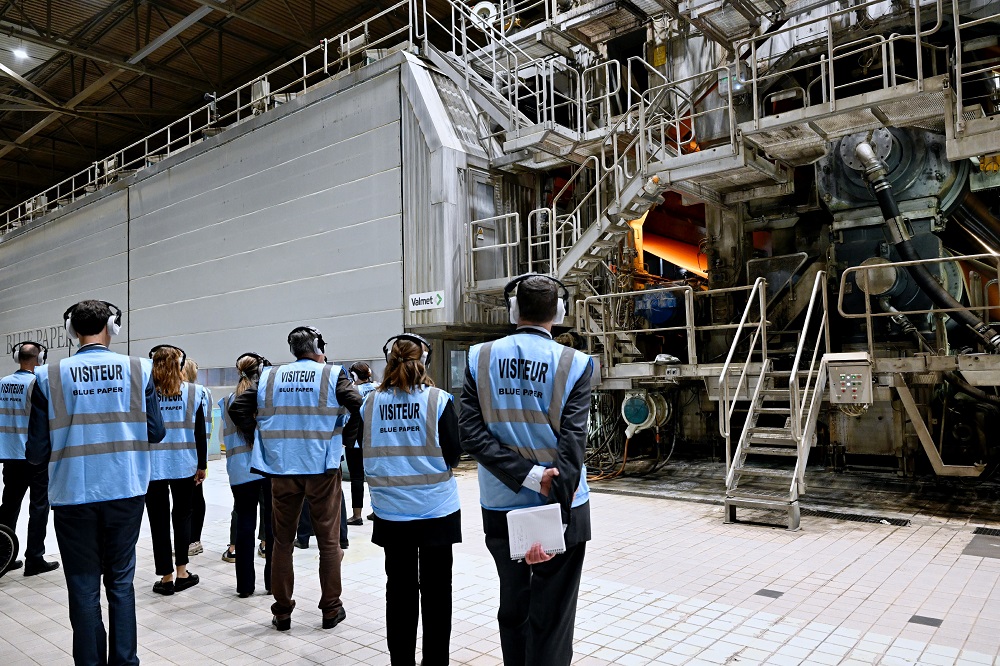Europe’s paper industry has been undergoing a quiet revolution in recent years.
As the needs of customers and the demands of regulators have evolved, energy-intensive practices are being replaced by new approaches. The aim is to deliver essential products in a way that places responsible management of both energy and material resources at the heart of operations.
The Confederation of European Paper Industries (Cepi) recently led a fact-finding visit to Blue Paper in Strasbourg, one of France’s largest papermills. The aim was to provide legislators and senior industry figures with an insight into the way that the paper industry is transforming itself to deliver the twin objectives of economic growth and sustainability.
The economic impact of the industry is hugely significant. Cepi represents almost 500 pulp, paper, and board-producing companies across Europe ranging from family-led SMEs to major multinationals. Those businesses are part of an industry that adds €100bn of turnover to the European economy and €20bn to European GDP every year.
As an industry, it is a great example of changing both what we make and how we make it
However, Cepi told The Parliament that the economic impact achieved by the industry is only one part of the story.
“The positive financial impact is enormous but the paper industry is also leading the way when it comes to sustainability,” explained Ana Díaz, Cepi’s EU Public Affairs Manager. “We are learning a lot from the current process of transformation, and that it is not only useful for our own sector but it is also providing a model that other industries can potentially adopt.”
What visitors touring the Strasbourg facility discovered was a modern business that has pivoted both what it manufactures and how it does it. Originally established as a paper mill to provide the newspaper industry with paper made from ‘virgin fibres’, Blue Paper now uses 100% recycled paper to produce packaging materials for Europe’s burgeoning logistics sector, providing a new mission statement to the skilled workforce at the site: “100% recyclé, 100% engagé”.
One of those visiting the site was Sebastian Heinzel, CEO of Heinzel Group, a major paper manufacturer and exporter headquartered in Austria. Heinzel told The Parliament that the Strasbourg papermill is a powerful example of a transformation that is taking place right across the industry.

“This is a model plant that shows how the industry is adapting to meet the needs of today,” Heinzel explained. “This used to be a papermill for newspaper production but it has successfully repurposed itself. As an industry, it is a great example of changing both what we make and how we make it.”
Visitors were particularly impressed by the way that Blue Paper was setting new standards when it came to sourcing and using energy. The Strasbourg site has slashed the amount of natural gas it uses by shifting to biomass and turning unrecyclable waste into energy.
“Paper production is, by its very nature, energy-intensive and requires a lot of heat,” Heinzel told us. “But this plant shows that it can be done in a way that is much more sustainable. It is an amazing example of an industry that is adapting to become fit for the 21st century.”
Heinzel was one of several figures on the visit from other paper manufacturing businesses from across Europe. That is typical of a sector that is committed to sharing learning and best practice on critical issues such as sustainability and safety.
And the story that Blue Paper has to tell on energy efficiency is undoubtedly impressive. François Bru, General Manager of Blue Paper, told visitors that the site’s main boiler now uses only biomass as fuel to produce steam. That steam is first expanded in a turbine to produce electricity before then being used to dry the paper. Alongside the main biomass boiler, a recovered fuel boiler is transforming waste into energy, with unrecyclable material from the pulp preparation process being used to generate additional electricity. Captured heat from the factory is also now being used to support a district heating system for local homes and the nearby hospital.

Paul-Antoine Lacour heads COPACEL, the representative body for the French paper industry. He believes that sharing the progress that the industry is making on critical issues such as energy and water use is essential.
“The paper industry is a great example of how an industry can embrace change to reflect the changing needs of society,” he told The Parliament. “We are already leading the way when it comes to recycling rates, but what MEPs saw today is that many businesses are going further to reduce waste and to almost eliminate reliance on fossil fuels.”
Lacour hopes policymakers and other stakeholders understand the depth of commitment to sustainability that exists in the European paper industry. He believes that good policymaking is conditioned by legislators having a proper understanding of the way that businesses on the ground operate.
“Visits like this are incredibly important,” he told us. “It is vital for MEPs to see for themselves the steps our industry is taking to deliver high-quality products in a more sustainable way. This plant is only 4km away from the European Parliament building so MEPs can come along, learn more, and see what a circular economy actually looks like on the ground.” From an industry committed to transparency, that invitation is also valid for the many pulp and paper production sites across Europe.
Sign up to The Parliament's weekly newsletter
Every Friday our editorial team goes behind the headlines to offer insight and analysis on the key stories driving the EU agenda. Subscribe for free here.